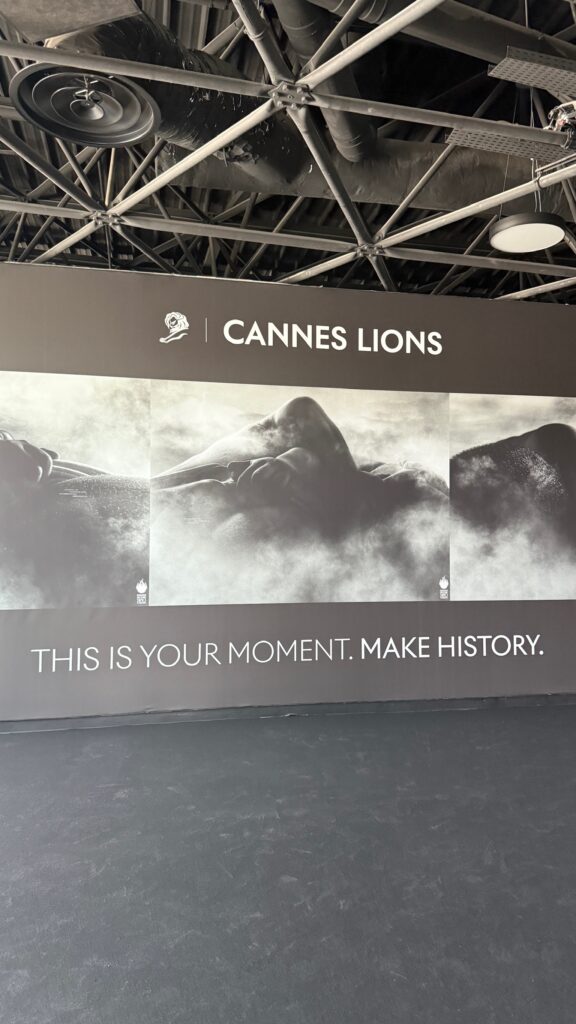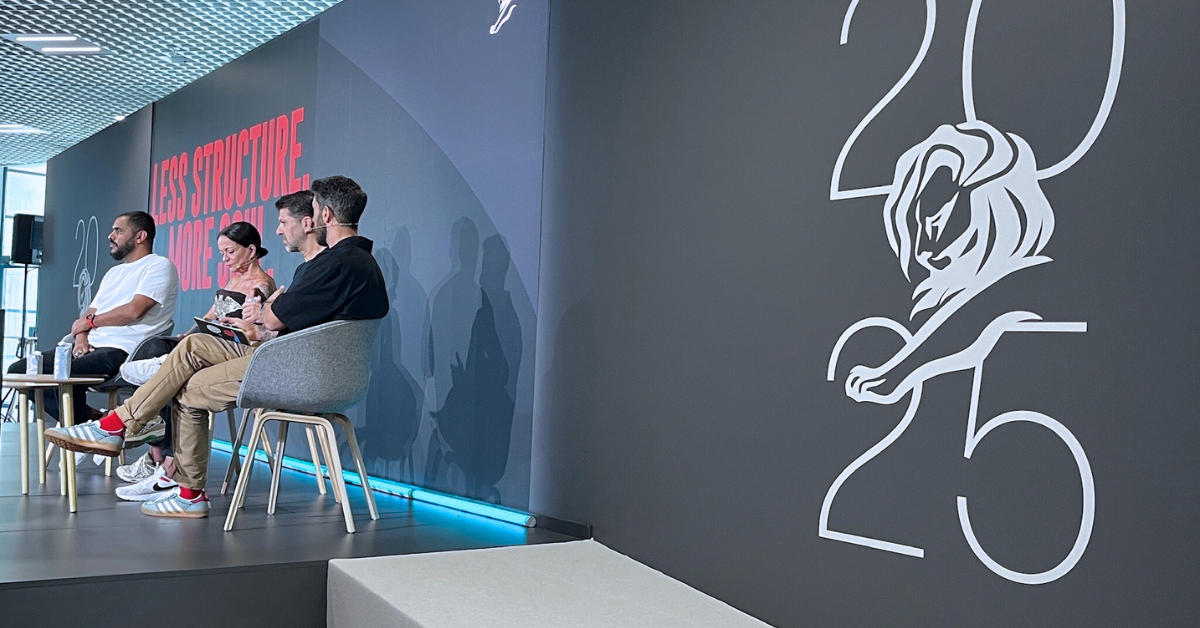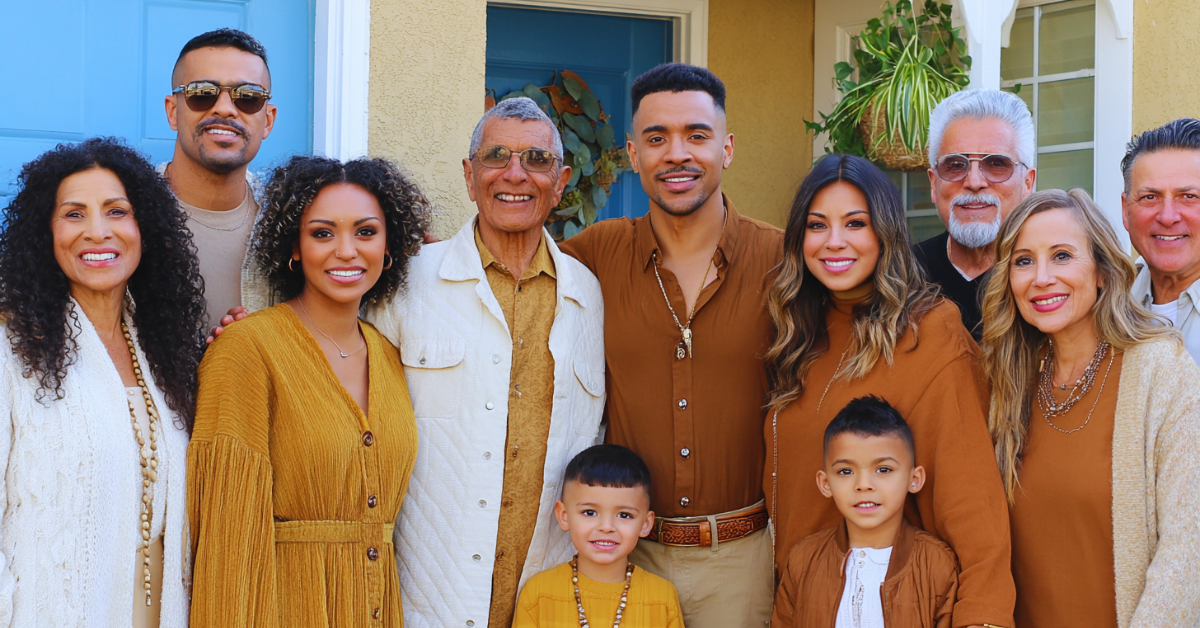The 2025 Cannes Lions International Festival of Creativity was a study in contrasts. AI took over the stages, panels, and beachfront demos, but the conversations that stuck weren’t about tech. They were about authenticity, human connection, and the kind of creativity that can’t be replicated by any algorithm.
This year’s festival made one thing crystal clear: we’re navigating uncharted territory where cutting-edge technology meets age-old human desires for truth, belonging, and meaningful connection. The brands winning hearts and wallets are embracing AI while doubling down on what makes us fundamentally human, community.
We also explored how Hispanic marketing showed up at Cannes this year, highlighting culture-driven creativity that moved audiences worldwide.
Here’s everything you need to know from the world’s most influential marketing event, where industry titans, rising stars, and cultural icons shared insights that will shape the future of brand building.
The AI Revolution Meets Human Reality
Artificial intelligence was the backdrop against which every other conversation unfolded. From panel titles to late-night conversations about the future of work, AI’s presence was impossible to ignore.
Apple’s VP of Marketing Communications, Tor Myhren, set the tone in the Festival’s opening seminar when he delivered a sobering reality check: “The good news is, AI is not going to kill advertising. The bad news is, AI is not going to save advertising. We’ve got to save ourselves.”
This sentiment echoed throughout the festival. While marketers absolutely need to be learning, testing, and integrating AI into their operations, the technology alone won’t solve the fundamental challenges facing the industry.
The Cultural Contradiction
We’re witnessing a fascinating paradox. As AI accelerates at breakneck speed, consumers are craving something much older: authentic human connection. People want belonging, truth, and representation that feels earned rather than engineered.
One panelist captured this perfectly: “Community is the new algorithm.” While brands obsess over scale and personalization, audiences are rewarding resonance above all else. They can detect when something feels overly polished or artificially generated, and they’re rejecting it in favor of content that feels genuine, even if it’s imperfect.
Authenticity: The New Currency of Trust
The word “authenticity” might have outnumbered even AI mentions at this year’s festival. It represented a fundamental shift in how successful brands connect with their audiences.
Beyond the Buzzword
Authenticity isn’t a strategy slide or a checkbox on a campaign brief. It’s a trust signal that shows up in three critical ways:
Who’s telling the story: Brands are moving beyond traditional spokespeople to embrace creators, employees, and community members whose lived experiences align with their message.
How the story is told: The most effective content feels conversational and genuine rather than overly produced or corporate.
Whether audiences believe you meant it: Consumers have developed sophisticated radar for performative messaging versus authentic brand values.
The Human Superpowers That AI Can’t Replicate
While technology offers speed and efficiency, this year’s speakers emphasized the competitive advantages that belong uniquely to humans.
Emotional Intelligence and Humor
Sir John Hegarty, Co-Founder of BBH, boldly stated that “AI has democratised opportunity. Creativity is the only thing left to compete on.” Global brands like Disney, LVMH, and Procter & Gamble concurred that the best creative work stems from unique lived experiences.
Chris Charles, Executive Creative Director at 21GRAMS, argued that “making people laugh is one of the strongest superpowers you have as an advertiser.” Science educator Bill Nye agreed, noting that laughter makes people feel better, and happy people are more likely to buy products.
Craft and Storytelling
Marc Pritchard, Chief Brand Officer at Procter & Gamble, warned against staying on the “hamster wheel of content.” Instead, he urged a return to storytelling that puts the audience first, emphasizing that craft is key to encouraging people to feel and ultimately take action.
Producer and musician James Blake cautioned brands not to overestimate AI’s emotional bandwidth. While the technology offers speed, it often lacks soul. His suggestion: even when tech makes it tempting, don’t rush or shortcut the creative process.

Sustainability and Purpose
The 2025 festival saw increased emphasis on sustainability, with more than double the number of content sessions compared to the previous year. The United Nations Global Compact unveiled the CMO Blueprint for Sustainable Growth, providing actionable guidance for harnessing sustainability as a driver of business growth.
Purpose Gets Personal
Purpose-driven marketing hasn’t disappeared—it’s evolved. Edelman CEO Richard Edelman emphasized that purpose has become more personal, with brands focusing on serving individual lives, families, and futures rather than making broad social statements.
Alemu Emuron, Chief Creative Officer at The Quollective, advised marketers to look beyond surface-level trends: “Why chase trends when culture’s already done the heavy lifting? Don’t work with the mixologists at your hotel—work with the mixologists who serve your audience.”
When Emotion Drives Impact
Unilever’s Chief Growth and Marketing Officer Esi Eggleston Bracey noted that brands should cater to deeper desires, “not just wants or needs.” The shift from one-to-many communications to many-to-many ecosystems requires brands to understand and address fundamental human emotions.
The Rise of Creative Bravery
Despite uncertainties about AI and market fragmentation, several speakers championed creative courage as essential for breakthrough success.
Risk as Competitive Advantage
Ben Lamm, Co-Founder and CEO of Colossal Biosciences, urged people not to panic about new technologies. To solve serious problems and avoid resignation, “you have to have an attitude of risk.”
Director Peter Jackson revealed that The Lord of the Rings would never have been made if he’d waited for permission or perfect conditions. His point was simple: don’t wait. Start now, iterate later.
The Power of “Yes, And”
Mike Dubrick, Chief Creative Officer at Rethink, spoke about being inspired by the “yes, and” mentality of improv comedy. This approach encourages building on ideas rather than shutting them down, fostering innovation and creative breakthroughs.
Hope as Currency in Uncertain Times
In a world currently marked by conflict, misinformation, and economic uncertainty, brands are realizing that hope is one of their most powerful currencies.
Todd Kaplan, Chief Marketing Officer at Kraft Heinz North America, acknowledged the challenge: “People are overwhelmed, distracted and disengaged.” But with this diagnosis came opportunity—brands can serve as refuges, offering escape, stability, and hope.
Enabling Self-Expression
The most successful brands are those that enable self-expression and reframe brand ownership. They’re interrogating culture rather than appropriating it, working with creators who authentically serve their audiences rather than chasing viral moments.
The Future of Marketing: Human-Aware AI
The overarching theme of Cannes Lions 2025 was about creating harmony between AI and human creativity.
AI as a Creative Partner
Leading brands will treat AI as a creative partner, not a substitute. They’ll leverage technology to amplify cultural insight rather than dilute it, automating manual tasks and repetitive processes that drain energy instead of sparking innovation.
The Human Touch Remains Essential
When brands create real space for human creativity, ingenuity, and emotional intelligence, that’s when their work truly moves people. Technology should support this human element, not replace it.
The best conversations at Cannes weren’t about innovation for its own sake—they were about meaning. The moments that stuck weren’t technology demos but reminders that in our rush toward the future, the things that make us human matter most.
Your Next Steps in the AI-Human Balance
Cannes Lions 2025 made one thing abundantly clear: the future belongs to brands that can master the delicate balance between technological capability and human authenticity.
Success in this new landscape requires embracing AI while doubling down on what makes us uniquely human. It means using technology to amplify creativity rather than replace it, and recognizing that in an age of artificial intelligence, genuine human connection has become our most valuable differentiator.
The brands that will thrive are those that understand this fundamental truth: people aren’t just impressed by AI-generated content anymore. They want to know if it’s human-aware. They want to feel something real, even if it’s imperfect.
As we move forward, the question isn’t whether AI will transform marketing—it’s whether we’ll use it to enhance our humanity or diminish it. The choice is ours, and the future of our industry depends on getting it right.



